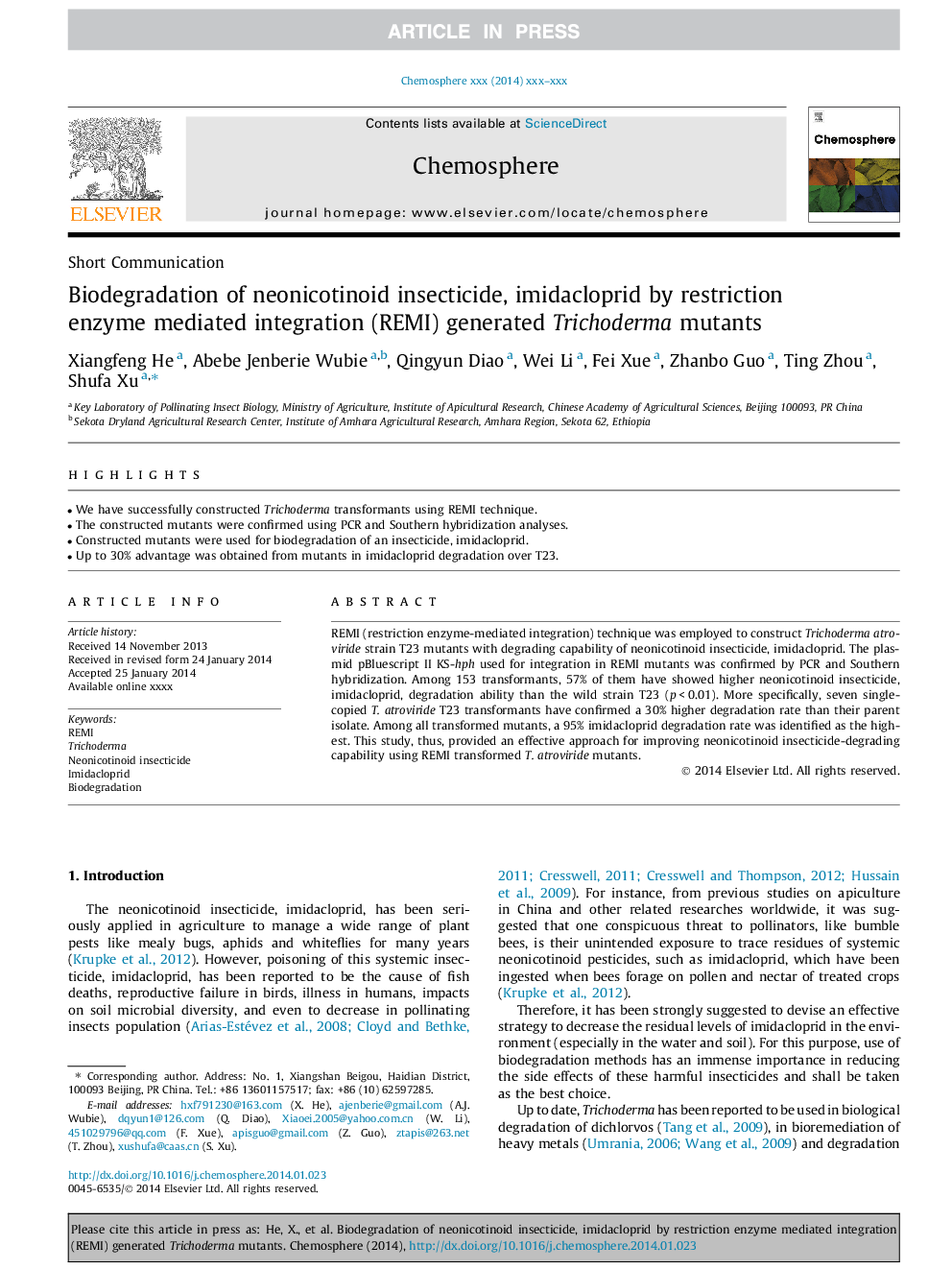| Article ID | Journal | Published Year | Pages | File Type |
|---|---|---|---|---|
| 6308901 | Chemosphere | 2014 | 5 Pages |
Abstract
REMI (restriction enzyme-mediated integration) technique was employed to construct Trichoderma atroviride strain T23 mutants with degrading capability of neonicotinoid insecticide, imidacloprid. The plasmid pBluescript II KS-hph used for integration in REMI mutants was confirmed by PCR and Southern hybridization. Among 153 transformants, 57% of them have showed higher neonicotinoid insecticide, imidacloprid, degradation ability than the wild strain T23 (p < 0.01). More specifically, seven single-copied T. atroviride T23 transformants have confirmed a 30% higher degradation rate than their parent isolate. Among all transformed mutants, a 95% imidacloprid degradation rate was identified as the highest. This study, thus, provided an effective approach for improving neonicotinoid insecticide-degrading capability using REMI transformed T. atroviride mutants.
Related Topics
Life Sciences
Environmental Science
Environmental Chemistry
Authors
Xiangfeng He, Abebe Jenberie Wubie, Qingyun Diao, Wei Li, Fei Xue, Zhanbo Guo, Ting Zhou, Shufa Xu,
